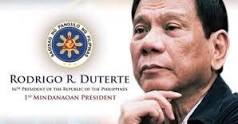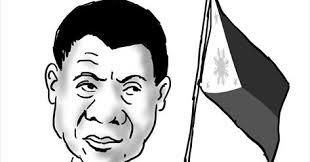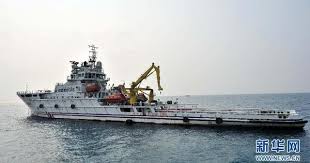https://youtu.be/HQXEYJlcdYI
Duterte: Who is Obama to ask me about human rights?
Philippine President Rodrigo Duterte called Barack Obama a "son of a w****"/"son of a bitch" on Monday as he vowed not to be lectured by the US leader on human rights when they meet in Laos.
The acid-tongued Duterte bristled at warnings he would face questioning by the US president over a crime war in the Philippines that has claimed more than 2,400 lives in just over two months.
"You must be respectful. Do not just throw away questions and statements. Son of a whore, I will curse you in that forum," Duterte told a news conference shortly before flying to Laos to attend the summit.
"We will be wallowing in the mud like pigs if you do that to me."
Duterte was due to hold a bilateral meeting with Obama on Tuesday afternoon on the sidelines of a summit of global leaders hosted by the Association of Southeast Asian Nations (ASEAN) in Vientiane, the Lao capital.
In response to Duterte's tirade, Obama said he had asked his staff to assess whether it would be productive for him to meet with Duterte.
Duterte was elected in May after a promise to wage an unprecedented war on illegal drugs that would see tens of thousands of suspects killed.
Official figures released Sunday show that, since Duterte took office on June 30, over 2,400 people have been killed in police anti-drug operations and by suspected vigilantes.
Duterte has angrily rejected criticism from the Catholic Church, human rights groups, legislators and the United Nations.
Duterte vowed Monday the bloodbath would continue as he pursued his goal of eradicating illegal drugs in the Philippines.
"More people will be killed, plenty will be killed until the last pusher is out of the streets. Until the (last) drug manufacturer is killed, we will continue and I will continue," he said.
Duterte insisted he would not take orders from the United States, a former colonial ruler of the Philippines, and did not care about how he was perceived.
"I don't give a shit about anybody observing my behaviour," he said.
Duterte also used vulgar language to accuse his domestic critics of wanting to please the United States.
"There are others who have the mental capacity of dogs who lap at the a** of the Americans," he said in reference to his critics.
Duterte is notorious for using offensive language.
During the election campaign Duterte described the US ambassador to Manila as a "son of a w****" and being homosexual.
This was in response to the ambassador's criticism of Duterte for making a joke about wanting to rape a "beautiful" Australian missionary who was killed in a Filipino jail.
IN QUOTES | Rodrigo Duterte, Philippines' president

IN QUOTES | Rodrigo Duterte, Philippines' president
“A leader must be a terror to the few who are evil in order to protect the lives and well-being of the many who are good.”
“If I become president, I advise you people to put up several funeral parlour businesses. They will be packed. I’ll supply the dead bodies.”
“Pardon given to Rodrigo Duterte for the crime of multiple murder, signed Rodrigo Duterte.”
“You son of a whore Pope Francis. Why don’t you just go home?”
"Many are asking what my credentials are and what I can do for the Philippines. They are telling me that they heard I am a womaniser. That is true. That is very true.”
"I was angry because she was raped, that’s one thing. But she was so beautiful, the mayor should have been first, what a waste." - The Telegraph UK
Insult reveals cracks in US-Philippine ties
https://youtu.be/zDBYczvXAlM
"Son of a bitch." This is how Philippine President Rodrigo Duterte referred to US President Barack Obama on Monday. This has set a dilemma for Washington. When Obama was asked to respond to the remarks, he said the Philippine president was a "colorful" person, showing a generous response. However, the White House still expressed its anger through diplomatic means by canceling Obama's meeting with Duterte that had been scheduled during the ASEAN summit in Laos.
Although Duterte's spokesperson said he regretted his sharp words, they have spread all over the world. He meant it when he said the Philippines has long ceased to be a colony and that "I do not have any master except the Filipino people, nobody but nobody." The hostility between the US and the Philippines can hardly be settled easily.
During his election campaign, Duterte was dubbed the Philippines' Donald Trump. Still, his big mouth as president has shocked the world, especially the West. The Western media listed the figures he has referred to as "sons of bitches," which included Pope Francis and the US ambassador to the Philippines. Duterte cursed these people when they pointed their fingers at the domestic politics of Manila. After he assumed power, he dealt a heavy blow to drug dealers, while the West accused him of violating human rights.
But Duterte's actions have been welcomed in his country. Although his dirty words have tarnished his international image to some extent, he apparently attaches more importance to domestic support. He is clear which side matters more to him. The latest friction between Washington and Manila seems accidental, but conflicts between Western values and developing countries are common. Duterte, on behalf of developing countries, only showed that he had had enough.
Many people believe it is time for Manila to seek support from the US as the maritime disputes between Manila and Beijing highlighted the importance of the US-Philippines alliance to the latter. But why did Duterte slap Obama in the face? The reason is that the Philippines does not feel insecure even faced with China's "threat." Beijing and Manila do have territorial disputes. But despite US support and a favorable arbitration award to the Philippines, the Philippines gained no real benefits. The alliance with the US is not the only consideration for Manila. The Philippines has shifted the focus back to internal governance. The US needs the Philippines more as it sees this Southeast Asian country as a pawn to counter China.
Chinese netizens applauded Duterte's words about Obama. But the US-Philippine alliance will remain solid. China should not hold too many illusions. From a long-term perspective, it will not necessarily be easy to deal with the Philippines under his rule.
The human rights issue has brought enmity between the US and its two allies of Turkey and the Philippines. We can judge the role of human rights in US diplomacy. The dispute between China and the US over the issue is worth our observation. - Global Times
Related posts:



Aug 23, 2016
... It won't be possible for Duterte to turn the domestic
Philippine political ... China
will not be too naïve to believe that a
new president will bring a .
May 11, 2016
... China will not be too naïve to believe that a
new president will bring a promising
solution to the South China Sea disputes between Beijing and ...
Apr 29, 2016 ... Filipinos are about to elect a new president. Lets hope one of the priorities of the
new leader is to tackle, with a lot of care, the safe release of ...
 Philippine ship towed over safety concerns - No more ...
Philippine ship towed over safety concerns - No more ...
Mar 3, 2016 ... Towing away the grounded Philippine ship is a once-and-for-all measure to ...
The Philippines will have a new president this year, and Benigno ...
 President Barack Obama disembarked from Air Force One in Hangzhou, China, on Saturday. Photo: JONATHAN ERNST/REUTERS
President Barack Obama disembarked from Air Force One in Hangzhou, China, on Saturday. Photo: JONATHAN ERNST/REUTERS 

 US President Barack Obama and Philippine President Rodrigo Duterte expected to meet on the ASEAN Summit and related Summits in Laos in early September 2016.
US President Barack Obama and Philippine President Rodrigo Duterte expected to meet on the ASEAN Summit and related Summits in Laos in early September 2016. 
 Going green By Wang Xiaoying
Going green By Wang Xiaoying Carbon commitment Illustration: Shen Lan/GT
Carbon commitment Illustration: Shen Lan/GT Chinese President Xi Jinping presides over the opening ceremony of the Group of 20 (G20) summit in Hangzhou, capital of east China's Zhejiang Province, Sept 4, 2016. [Photo/Xinhua]
Chinese President Xi Jinping presides over the opening ceremony of the Group of 20 (G20) summit in Hangzhou, capital of east China's Zhejiang Province, Sept 4, 2016. [Photo/Xinhua]
